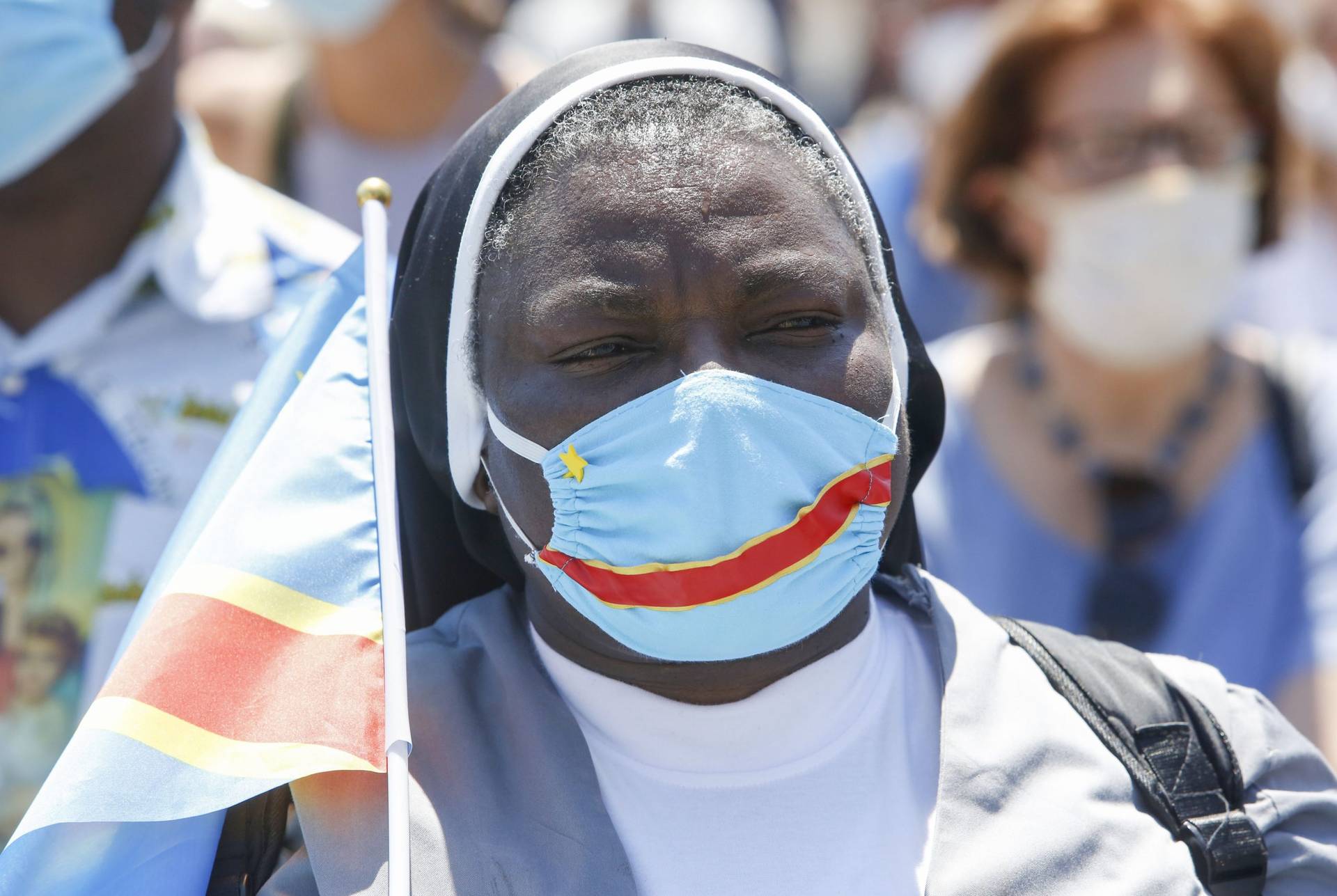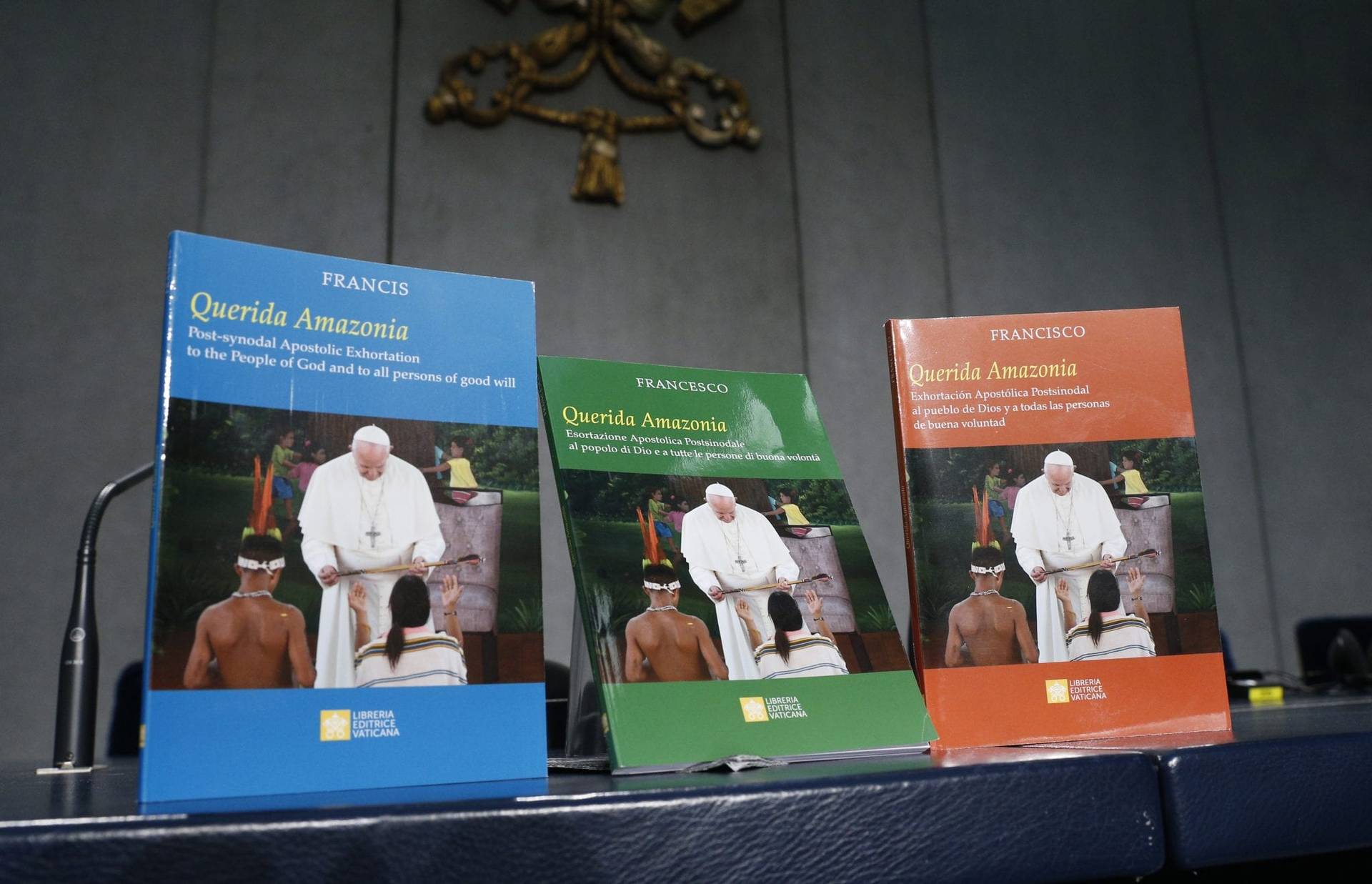ROME – When the curtain rises on Sunday for the Oct. 6-27 Synod of Bishops on the Amazon, much of the attention will be focused on the possibility of ordaining married men to the priesthood as a way of providing sacraments to areas that might not see a priest more than once or twice a year.
The Synod of Bishops’ preparatory document, the Instrumentum Laboris, was released in June and opened the door for debate on the issue, saying: “Affirming that celibacy is a gift for the Church, it is requested that, for the most remote areas of the region, the possibility of priestly ordination for elderly people is studied.”
The document says that the elderly people ordained in remote areas should “preferably [be] indigenous people, respected and accepted by their community, even if they already have a family that is established and stable, in order to ensure the Sacraments that accompany and sustain the Christian life.”
The men tapped by Pope Francis to organize the synod on Thursday defended the plans to introduce the topic of married priests by saying it represents the “voice of the local church,” demonstrated by the responses of around 80,000 people from the Amazon region who answered questions posed to them by the Catholic Church ahead of the October meeting.
RELATED: Amazonians say married priests a response to local realities
Italian Cardinal Lorenzo Baldisseri, who heads the office of the Synod of Bishops, told journalists that he understands there’s been criticism against the preparatory document, with some cardinals even calling it “heretical.”
Brazilian Cardinal Claudio Hummes, the retired archbishop of São Paulo and a key organizer of the synod, said the lack of priests is not a novelty in the Amazon and has always been the case, but the fact that the faithful cannot access the sacraments is gravely harming the Church’s ministry in the region.
“The Church lives in the Eucharist and the Eucharist builds the Church,” he said, quoting St. John Paul II.
The Brazilian cardinal also said that the presence of the Catholic Church in the Amazon is not new, as it’s been there for the past “four or five centuries,” by now becoming a part of the “history and identity of the Amazon.”
When speaking about the Amazon, Hummes argued, one cannot but speak about the Church too, as the institution was “heroic” in the region, due to the many challenges the people there face; but he also referenced the martyrs, missionary men and women who were killed for taking the Gospel to the region and for defending the rights of the indigenous peoples and the environment.
He insisted the Church must remember, “now more than ever,” that indigenous people have their own cultures, their own spirituality and their own religious history.
“God too was present in their lives [before the arrival of the Church] and communicated with them in some mysterious way,” Hummes said. “Because they too are children of God, and God has a loving relationship with everyone.”
Seeing that God has always been present in the history of these peoples, the prelate said, the Catholic Church has the need for “enculturating the Christian faith within the indigenous traditions,” dialoguing with them, but also with everyone who works for the good of the Amazon community.
At the same press conference, Baldisseri said that the Instumentum Laboris is a “martyr document” that was created to die, and instead be replaced by a new document the 184 bishops and other participants will create during the three-week summit. That final document will be presented to Pope Francis who will then, according to the prelate, write what is known as an apostolic exhortation.
Though customary, it’s not mandatory for a pope to write an exhortation – or any document – at the end of the synod. To date, Francis has upheld this tradition, writing Amoris Laetitia, after a two-fold synod on the family, and Christus Vivit after the synod on young people.
The cardinal noted that the controversial preparatory document is not papal magisterium, but that regardless, cardinals and others are welcome to criticize it because, “now more than before, there’s freedom of expression,” in the Catholic Church. The instrumentum laboris, he said, is merely a summary of a two-year listening process the Church did in the Amazon.
Peruvian Cardinal Pedro Barreto Jimeno, one of the presidents of the synod, was at hand during the press conference. He later spoke with a handful of reporters, including Crux, about the proposal of ordaining viri probati, meaning men of proven virtue, and the criticism the pope is receiving from some quarters.
“The synod is not a parliament,” Barreto said. “What we’re going to do is to present proposals to the pope. It is he who will decide, in accordance to what God asks of him, as the Successor of Peter — principal and foundation, perpetual and visible sign of the unity between the bishops and all the baptized.”
“To be with Francis today is to be inside the Church,” he said. “If one is not with Pope Francis then one is not fulfilling what Vatican II defined in its apostolic constitution [Lumen Gentium].”
Despite the interest on the matter of ordaining married men to address the priest shortage in the Amazon region – something many of the synod fathers are focused on, not only the media – Francis himself has noted several times that this is a “side issue” in the discussion. Furthermore, the pontiff has repeatedly said that he has no intention of doing away with priestly celibacy.
He’s opened the debate for the specific case of the Amazon, but sources close to him have told Crux that, despite the pressure from some quarters, including some of his closest advisers, he’s never actually voiced a definitive opinion on the matter.
On Wednesday, Cardinal Marc Ouellet, head of the Vatican’s Congregation for Bishops, told journalists that he’s open to the debate but “skeptical,” and that he’s not the only one in the Vatican who is: “Above me there is someone who is even more skeptical who has authorized the debate, and that’s OK.” Asked point blank by journalists if he meant the pope, he simply smiled and said he didn’t want to put words in his boss’s mouth.
According to Francis, the synod on the Amazon is to address the spiritual needs of the indigenous peoples in a region where poverty is rampant and long distances between sparse communities make the Church’s ministry complicated; but also, to address the ecological crisis in a region where deforestation and extractive industries threaten the environment.
RELATED: Facing pollution, fire and exploitation, Amazonians wonder ‘if the world hates us’
Though, as the name indicates, a synod is for bishops, only 184 of the close to 250 participants are in fact, “synod fathers,” with the rest being experts, consultants and auditors. Of the total, 35 are women, the biggest female presence at a synod since the meeting was implemented at the end of the Second Vatican Council in 1965.
Asked about the fact that women don’t have a right to vote on the synod’s final document, something religious women and other advocacy groups have demanded, Baldisseri said that despite the fact that Francis has made the exception to allow lay brothers to vote because they were superiors of religious orders, when it comes to women, “we must stick with the norms, and the interpretation of these norms rests with the Holy Father.”
Follow Inés San Martín on Twitter: @inesanma
Crux is dedicated to smart, wired and independent reporting on the Vatican and worldwide Catholic Church. That kind of reporting doesn’t come cheap, and we need your support. You can help Crux by giving a small amount monthly, or with a onetime gift. Please remember, Crux is a for-profit organization, so contributions are not tax-deductible.














